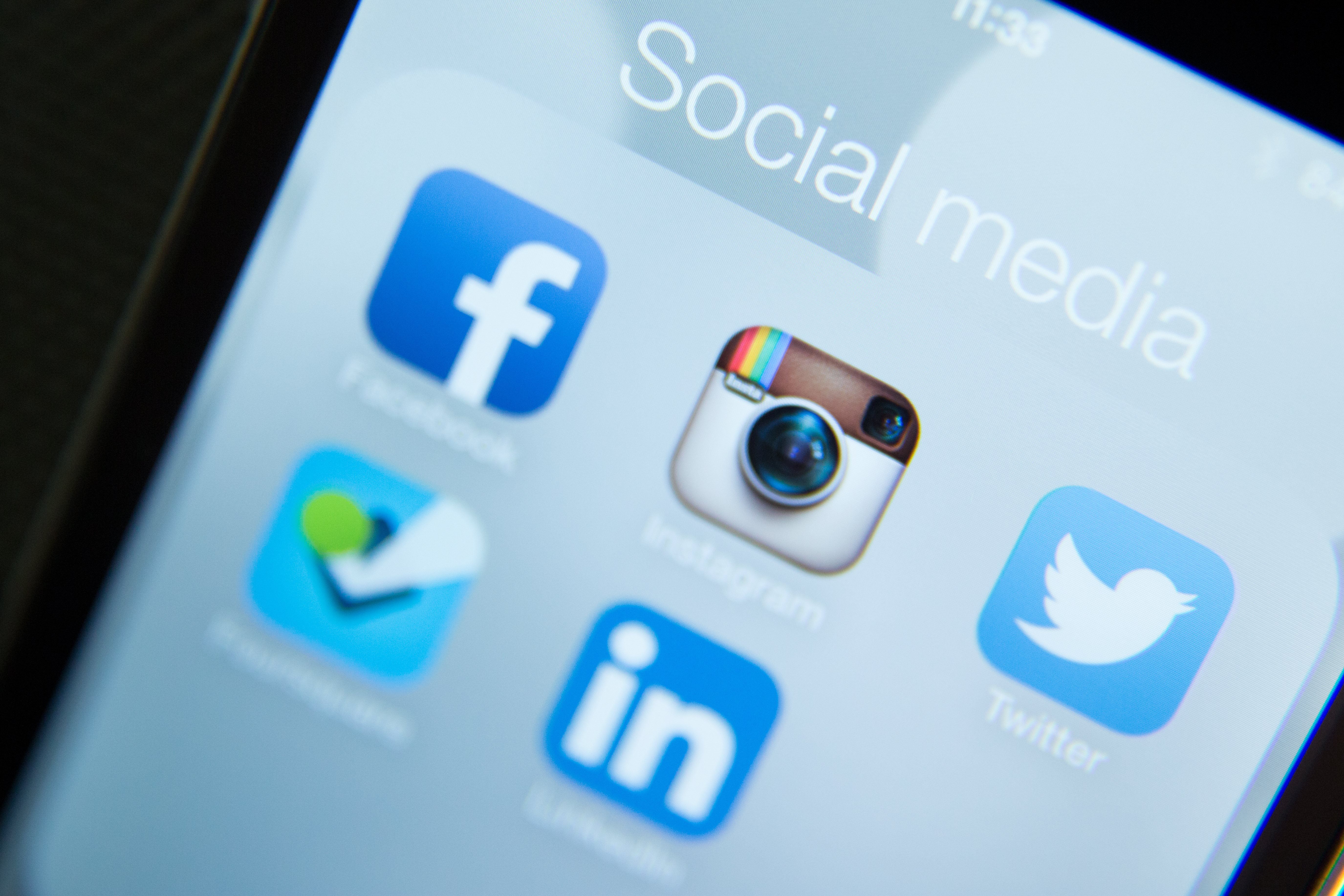
It might make you spend more money
New research suggests that heavy social media use might be correlated to lower self-control, which marketing experts believe could lead to higher spending. “Ultimately, the way you counteract this is by raising your self-awareness,” Columbia University Professor Keith Wilcox told TODAY. “It’s not about don’t spend time on Facebook, but just be aware of what it might be doing to you.” Learn exactly what can happen when you quit social media all together.

It alters your appetite
According to Women’s Health, “food porn” photos can activate the brain’s reward center and compel viewers to overeat; one study suggests that even looking at food images after a meal can trigger hunger. Posting a pic of your avocado-toast brunch might not seem terrible, but these are the photos you should never, ever post to any social media account.
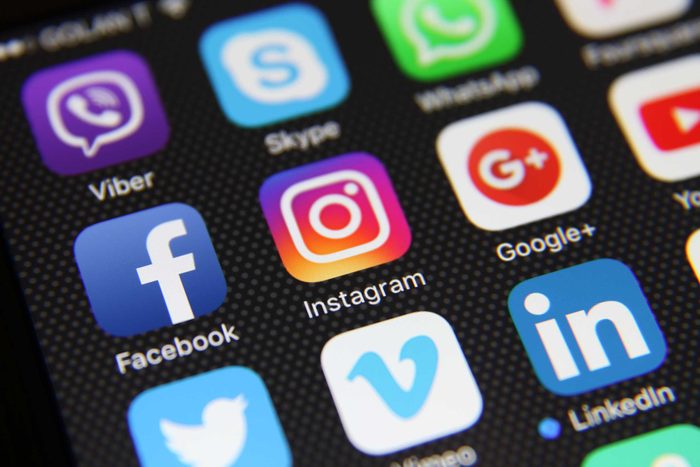
It messes with your ability to think independently
One study from HP Labs found that people were more open to peer pressure within social networks. Subjects were more likely to change their minds about “liking” certain things (one cute baby over another, for instance) if enough time had passed and they could see that the other side was even moderately popular.
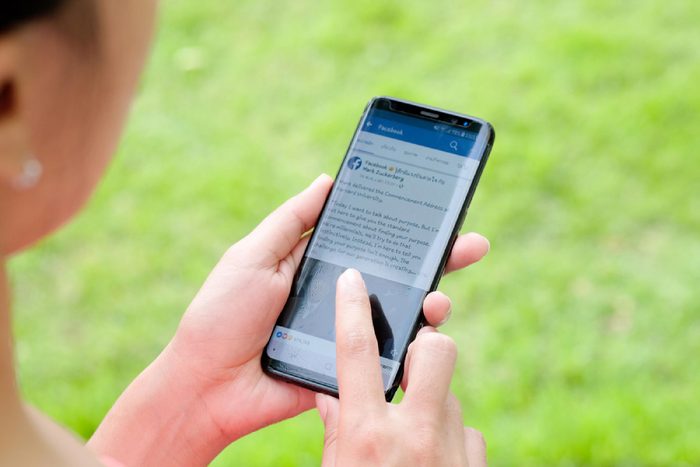
It hurts your self-esteem
When two German universities joined forces to investigate social networking, researchers discovered that one in three people surveyed felt worse (“lonely, frustrated or angry”) after spending time on Facebook, often due to perceived inadequacies when comparing themselves to friends.
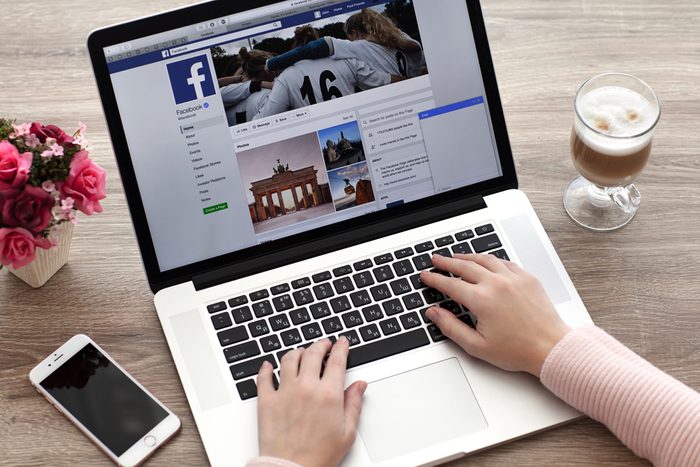
It can “butcher” real-life conversations
Susan Greenfield of Oxford University has compared online chats to buying prepackaged meat at a store: “Perhaps future generations will recoil with similar horror at the messiness, unpredictability and immediate personal involvement of a three-dimensional, real-time interaction.” Worried about all the effects social media has on you? Try to understand how social media can damage your relationships so you can make them better.
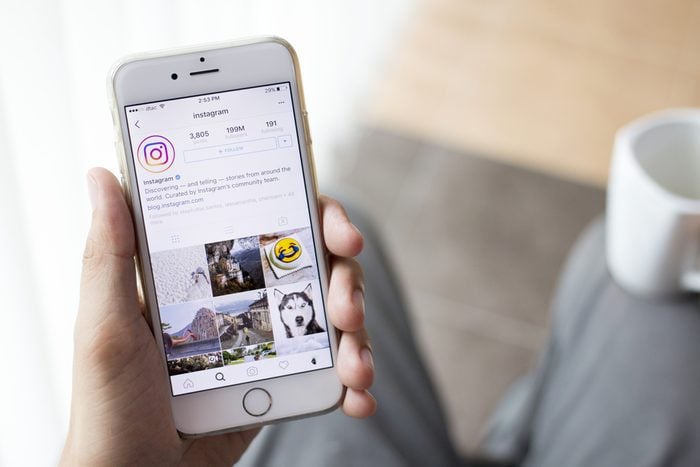
It activates our reward center
Peer pressure has existed long before social media. We want to participate in actives that will result in us being accepted and well liked. Actively using social media without a doubt elevates this and cause a wide-spread reaction across our brains’ reward center. At the University of California Los Angles’ Ahmanson-Lovelace Brain Mapping Center, researches used functional magnetic resonance imaging, or fMRI, to see exactly how teenagers’ brains were lit up when experiencing an app that resembled Instagram, where their photos received likes. “The same brain circuits that are activated by eating chocolate and winning money are activated when teenagers see large numbers of “likes” on their own photos,” says the study. The part of the brain that showed the most activity is called the striatum called the nucleus accumbens.
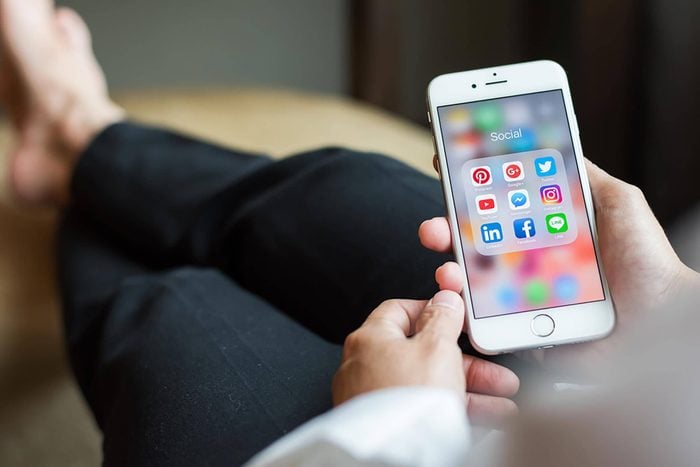
It increases your brain’s grey matter
In the Proceedings of the Royal Society: Biological Sciences, a correlation was found between online social network size and human brain structure. First, it’s important to understand that grey matter density determines our abilities to do certain tasks and achieve certain abilities. In this study, grey matter in the right superior temporal sulcus, the left middle temporal gyrus, and the entorhinal cortex, which are the parts of the brain responsible for social perception (recognizing faces) and memory, respectively, were much higher if a person had a larger social network. Basically, if you have more Facebook friends, you are probably better at remembering things. But here is the secret downside to your social media obsession.
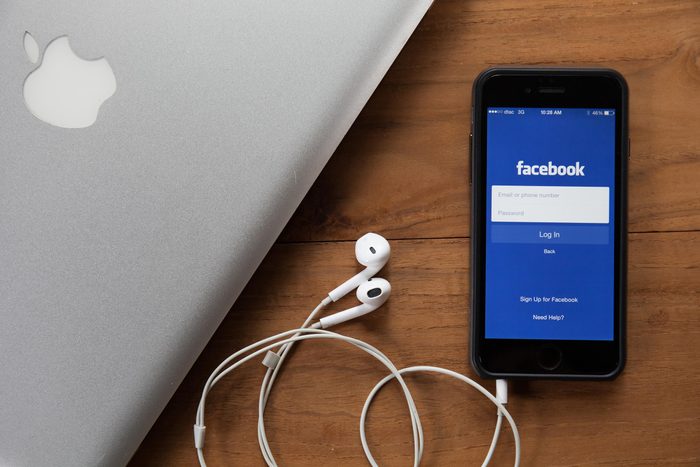
It makes you worse at multitasking
Constantly checking your email on your smartphone, switching over to Instagram to scroll for a bit, and then opening up Snapchat to make sure you share exactly what you’re doing to your network might make you think you’re good at multitasking. In reality, managing multiple accounts and switching your attention so often and quickly worsens your ability to focus on multiple activities. The Proceedings of the National Academy of Sciences of the United States of America published a study where “Results showed that heavy media multitaskers are more susceptible to interference from irrelevant environmental stimuli and from irrelevant representations in memory.” Because you think everything you’re doing on social media is important, you don’t end up doing very well in filtering out what’s not.
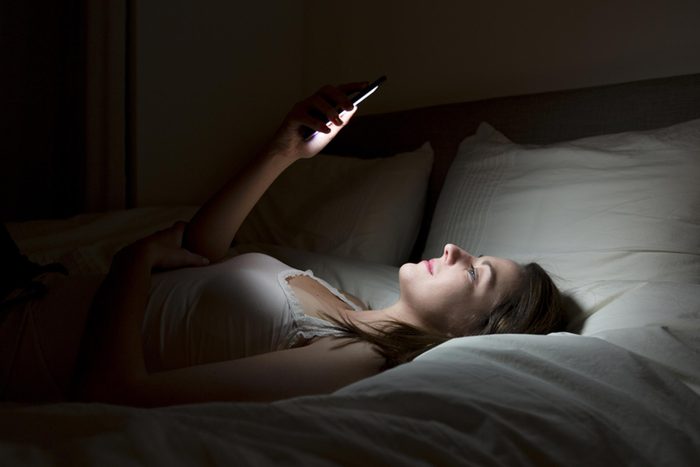
It can make you lose sleep
Melatonin is the hormone in your body that regulates sleep. High levels of melatonin can help you sleep while low levels can keep you awake. Harvard Health Publishing of Harvard Medical School says that any kind of light can reduce how much melatonin your body makes (which is why some people love wearing sleep masks or having black out curtains). However, blue light, which is emitted from the screens of your smartphone, lessens your melatonin levels even more. That said, social media scrolling, especially at night, can really put your circadian rhythm out of tune. Don’t worry though, there are some social media habits that you shouldn’t feel bad about.
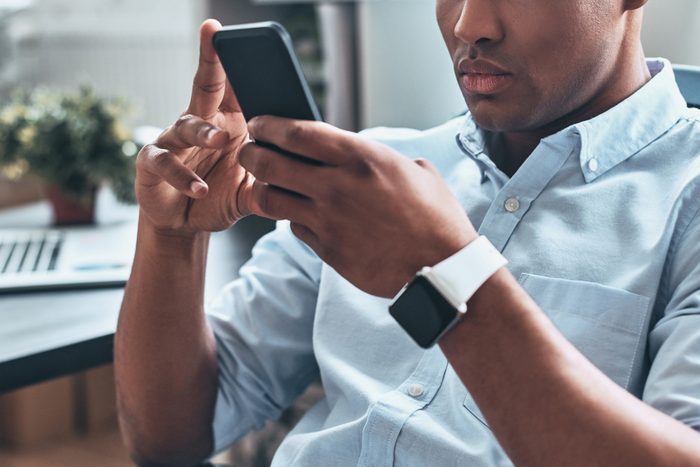
It can spark phantom vibrations
Many social media platforms have the option to turn on push notifications, which makes your phone vibrate for notifications from the app. Receiving vibrations from your phone has been linked to activating the reward center in your brain, especially when it comes to receiving messages. A study in the journal Computers in Human Behavior looked at the prevalence of phantom vibrations (fake vibrations) in undergraduate students. Those who had a more dependent reaction to receiving messages were more likely to believe their phone was buzzing again when it actually wasn’t. This might cause problems if you’re always checking your phone because you think you have notifications to look at. Next, learn how you can create a better relationship with your social media usage.